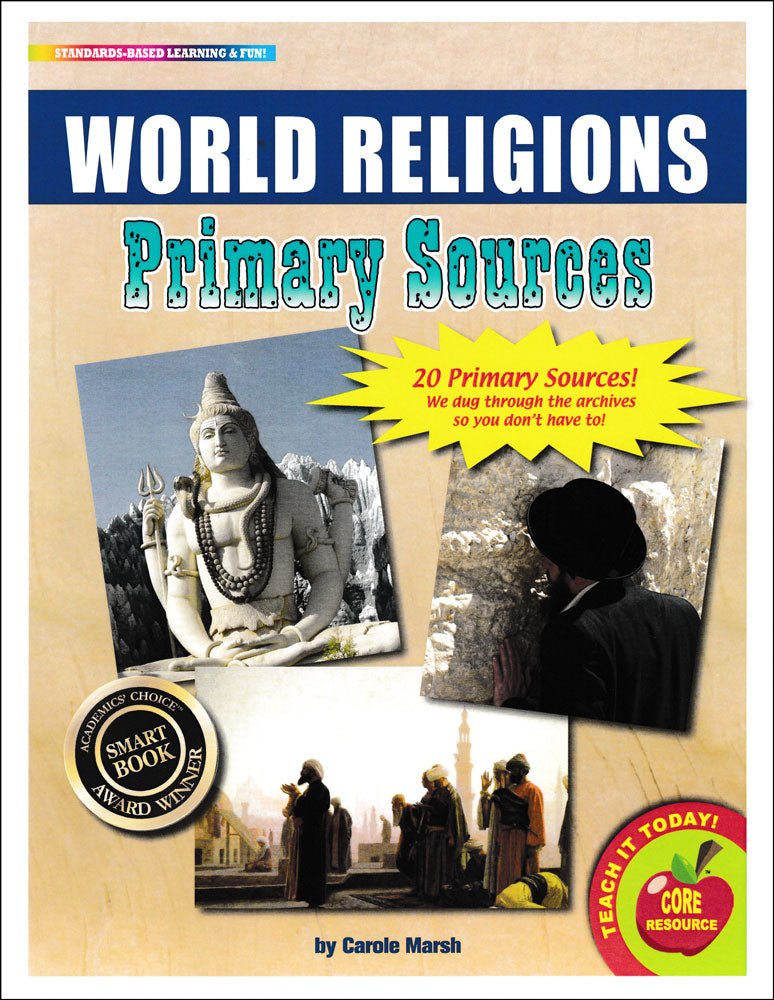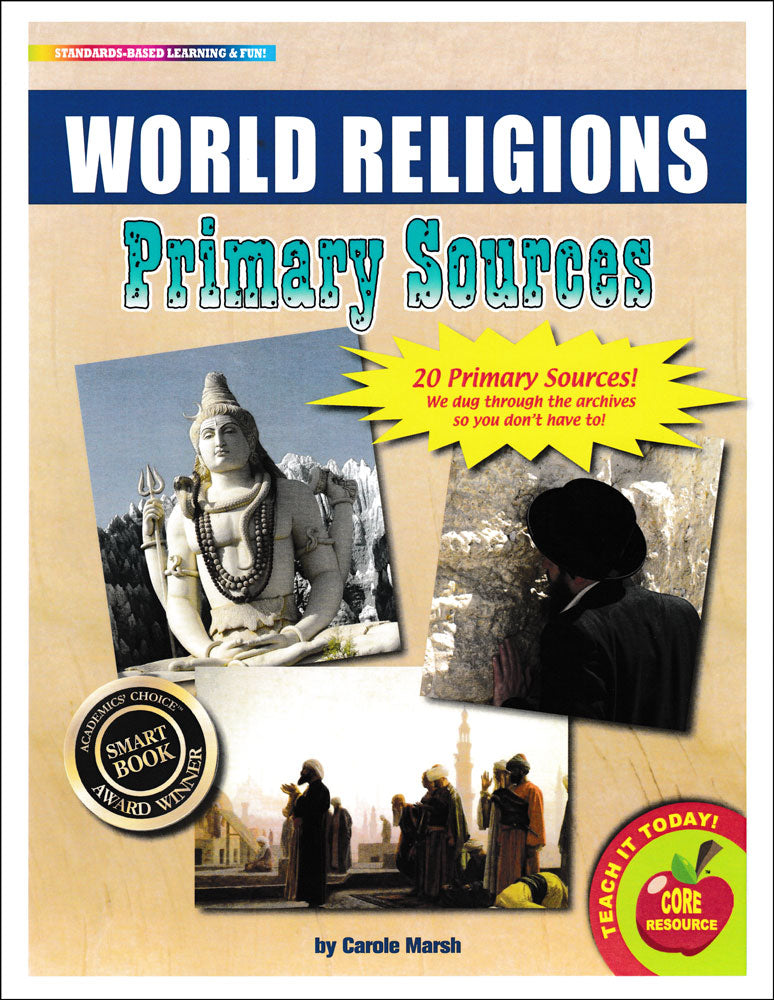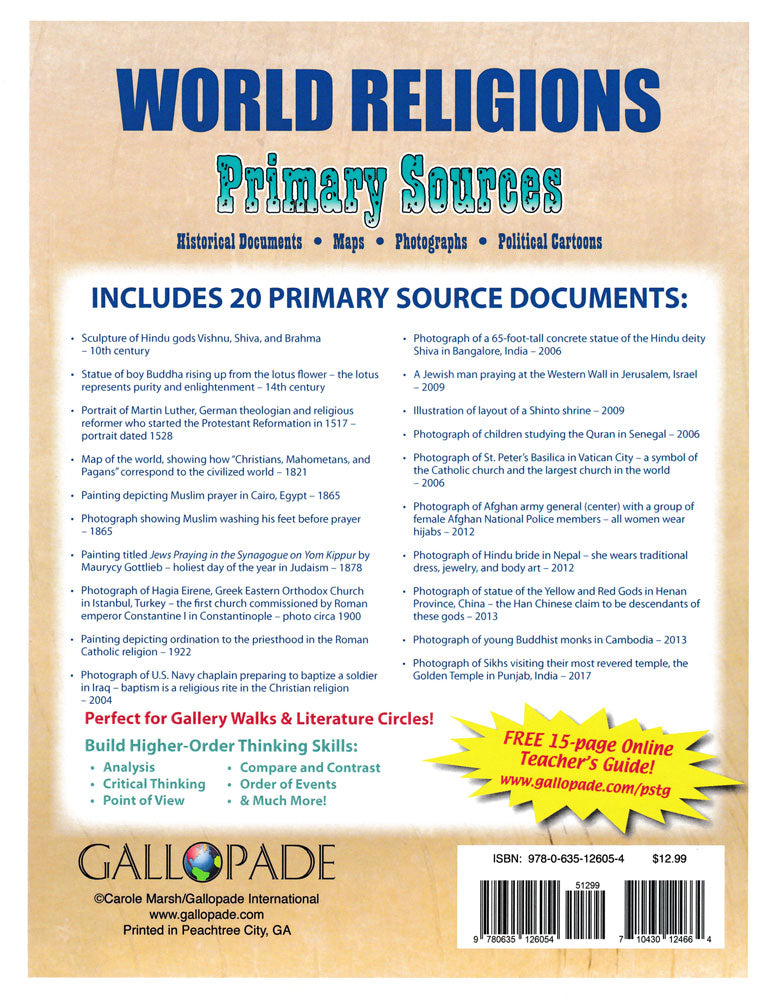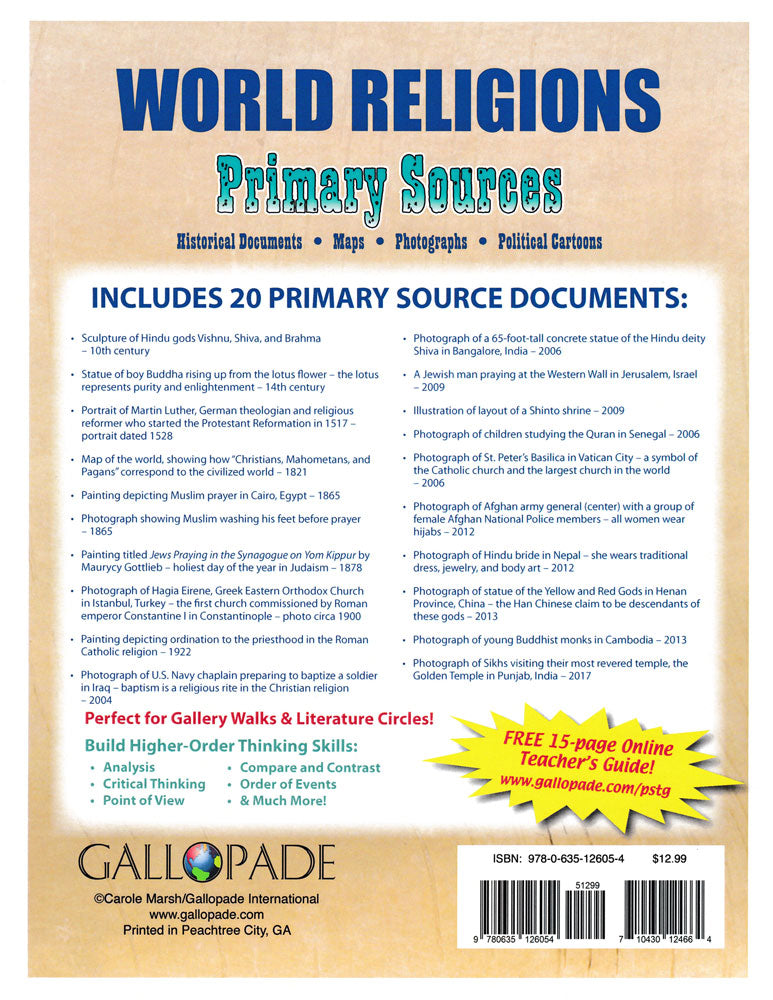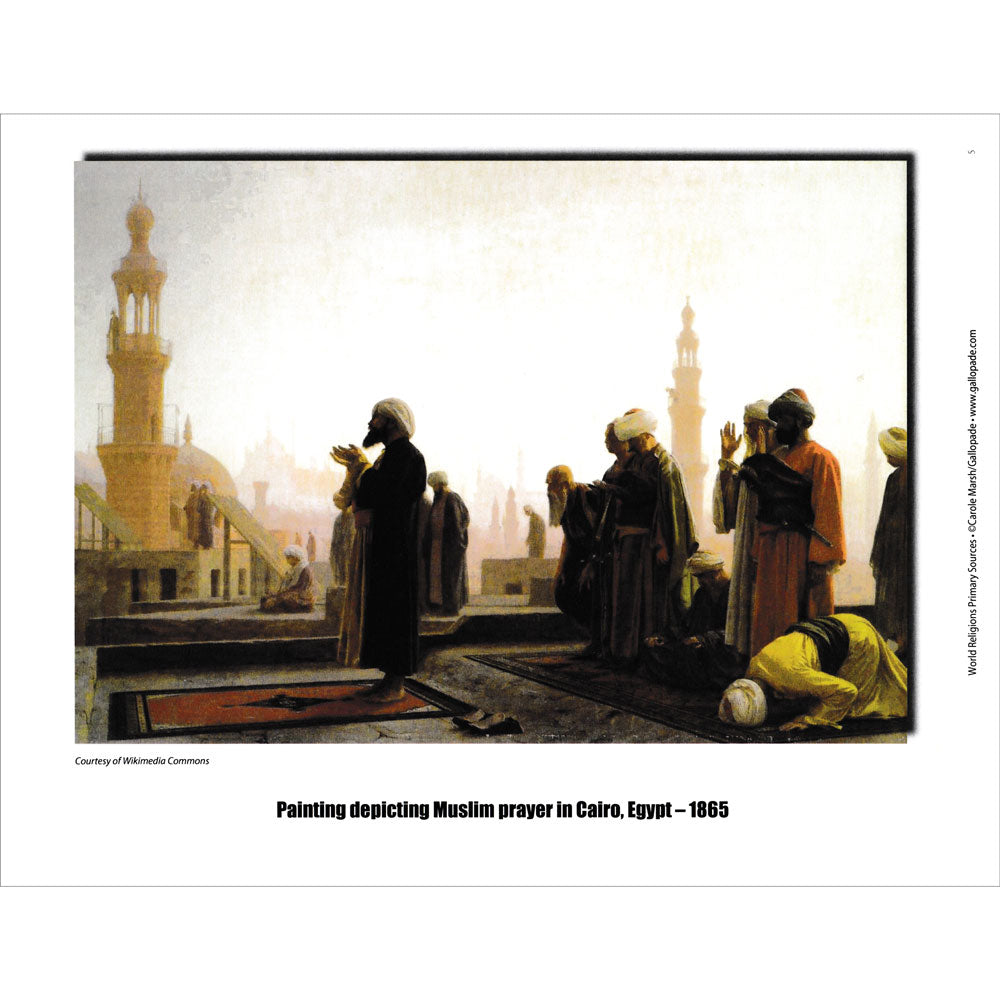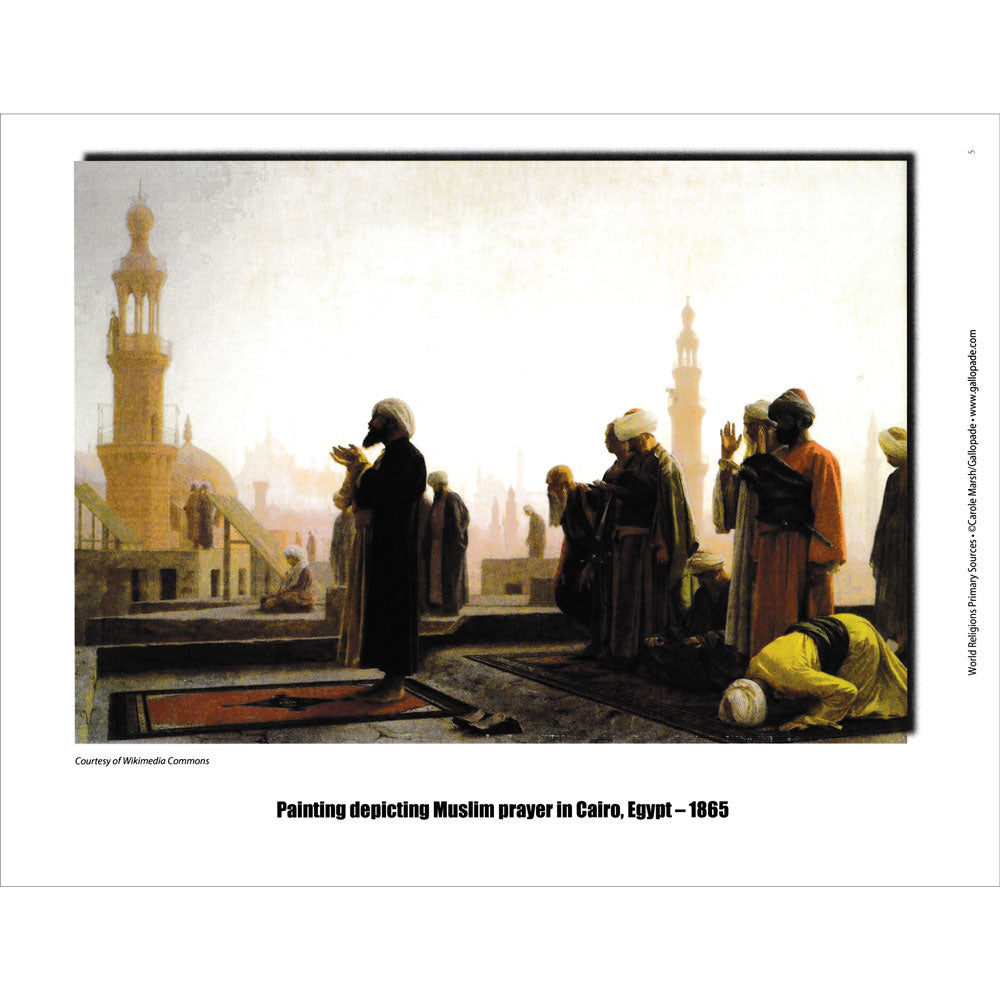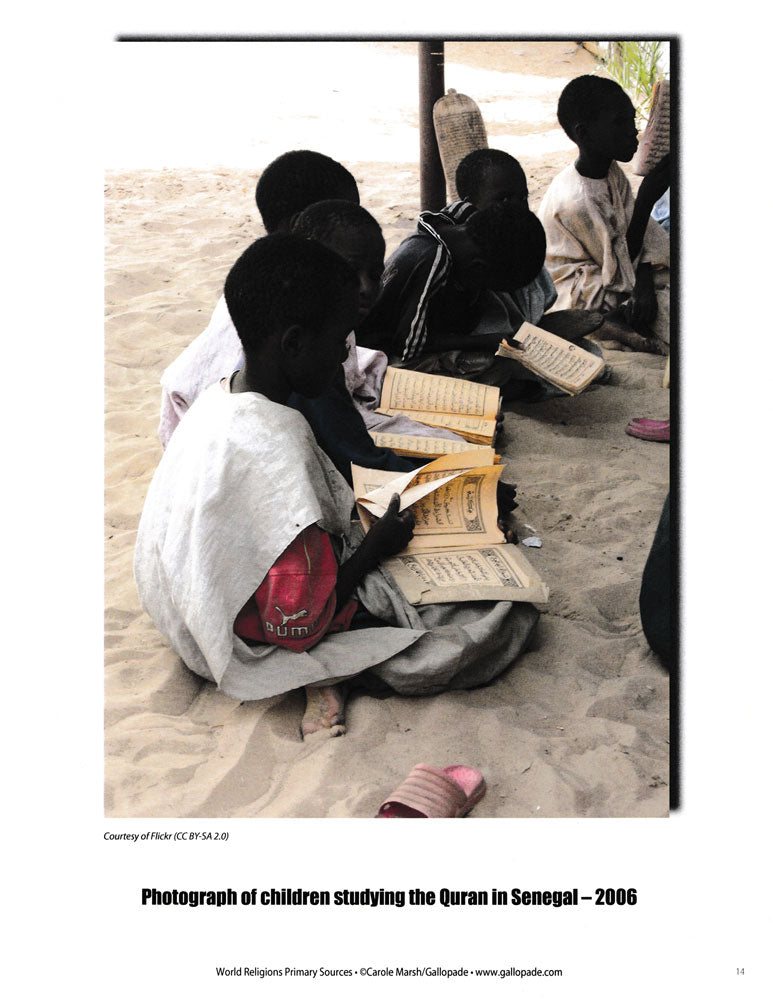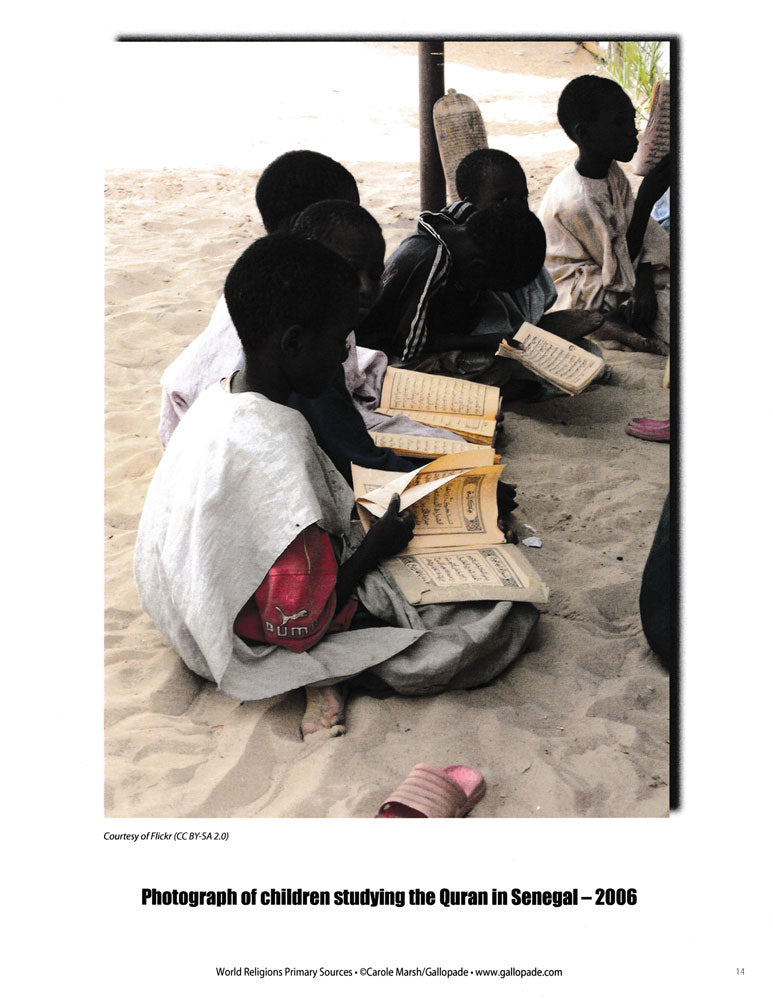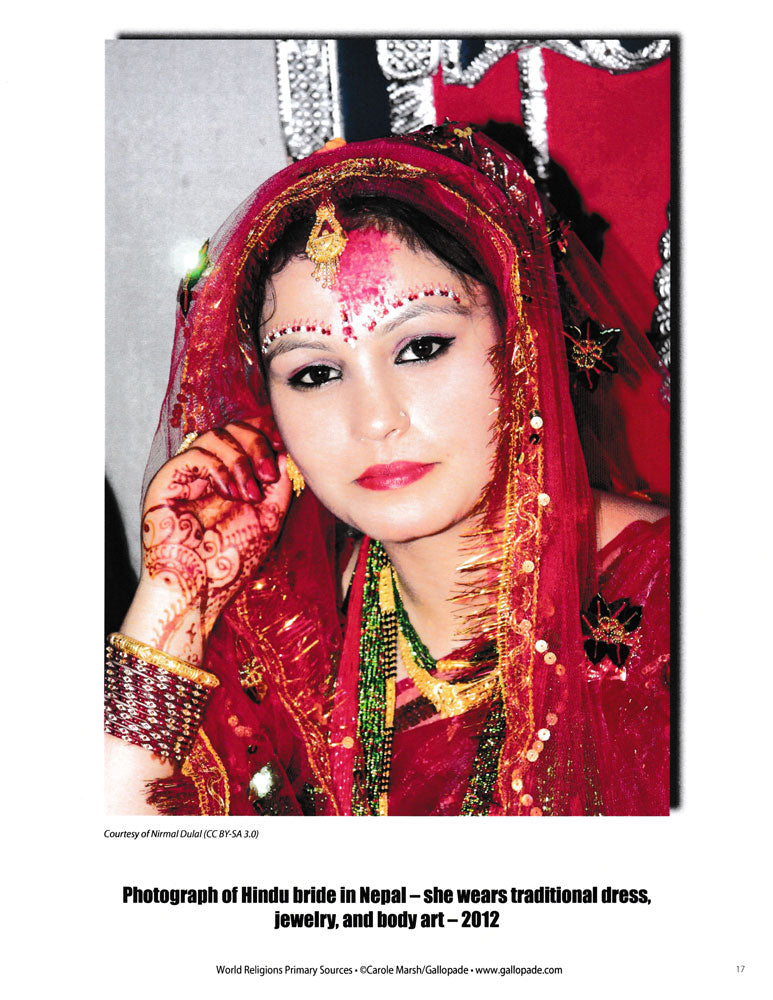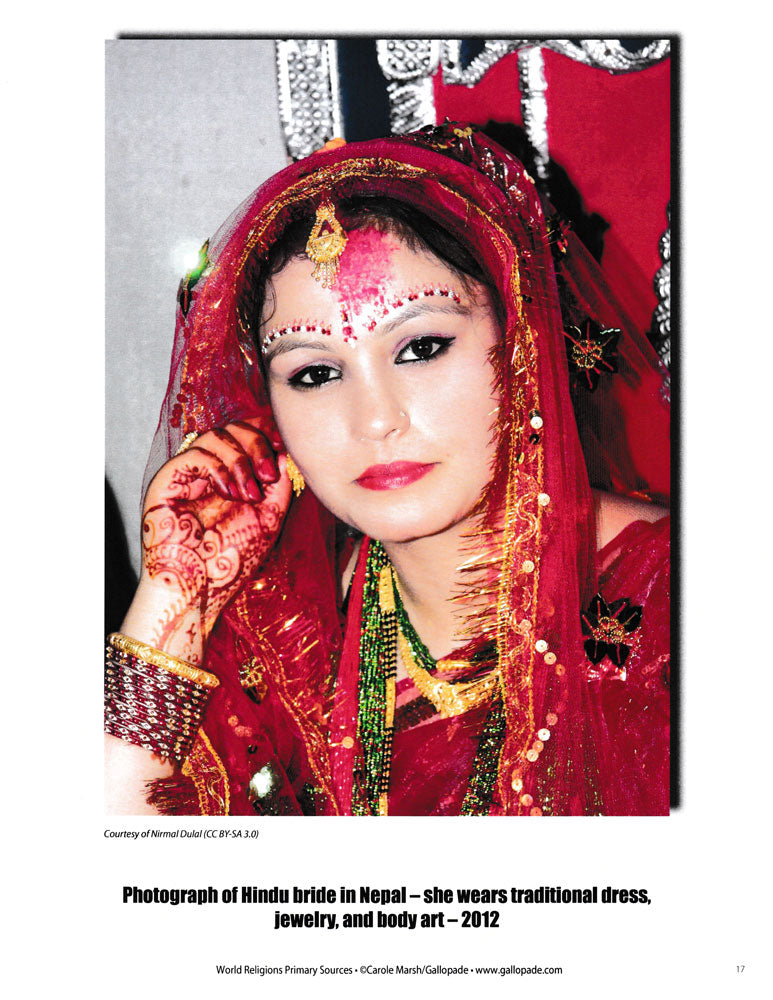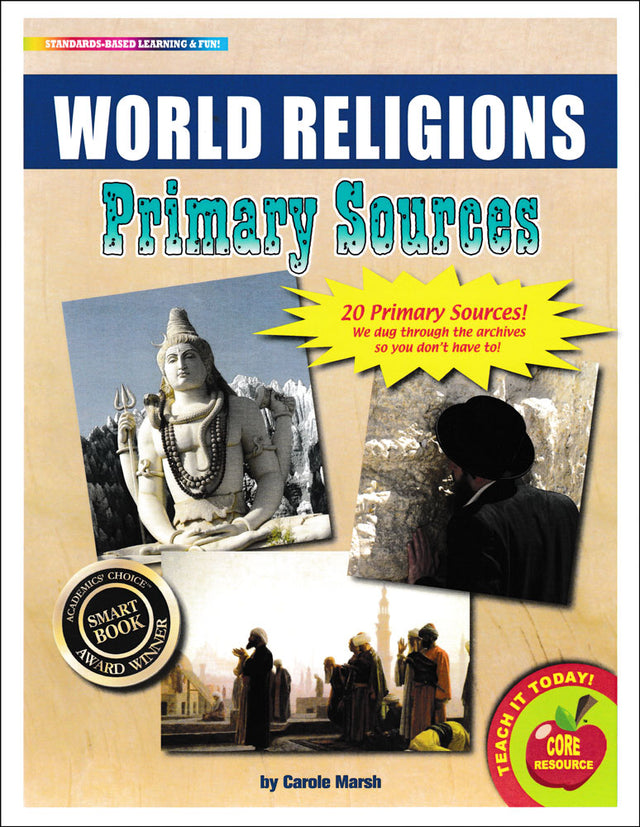World Religions Primary Sources are just what teachers need to help students learn how to analyze primary sources in order to meet Common Core State Standards!
Students participate in active learning by creating their own interpretations of history using historical documents. Students make observations, generate questions, organize information and ideas, think analytically, write persuasively or informatively, and cite evidence to support their opinions, hypotheses, and conclusions. Students learn how to integrate and evaluate information to deepen their understanding of historical events.
The 20 Primary Source documents in the World Religions include:
- Sculpture of Hindu gods Vishnu, Shiva, and Brahma—10th century
- Statue of boy Buddha rising up from the lotus flower—the lotus represents purity and enlightenment—14th century
- Portrait of Martin Luther, German theologian and religious reformer who started the Protestant Reformation in 1517—portrait dated 1528
- Map of the world, showing how “Christians, Mahometans, and Pagans” correspond to the civilized world—1821
- Painting depicting Muslim prayer in Cairo, Egypt—1865
- Photograph showing Muslim washing his feet before prayer—1865
- Painting titled Jews Praying in the Synagogue on Yom Kippur by Maurycy Gottlieb—holiest day of the year in Judaism—1878
- Photograph of Hagia Eirene, Greek Eastern Orthodox Church in Istanbul, Turkey—the first church commissioned by Roman emperor Constantine I in Constantinople—photo circa 1900
- Painting depicting ordination to the priesthood in the Roman Catholic religion—1922
- Photograph of U.S. Navy chaplain preparing to baptize a soldier in Iraq—baptism is a religious rite in the Christian religion—2004
- Photograph of a 65-foot-tall concrete statue of the Hindu deity Shiva in Bangalore, India—2006
- A Jewish man praying at the Western Wall in Jerusalem, Israel—2009
- Illustration of layout of a Shinto shrine—2009
- Photograph of children studying the Quran in Senegal—2006
- Photograph of St. Peter’s Basilica in Vatican City—a symbol of the Catholic church and the largest church in the world—2006
- Photograph of Afghan army general (center) with a group of female Afghan National Police members—all women wear hijabs—2012
- Photograph of Hindu bride in Nepal—she wears traditional dress, jewelry, and body art—2012
- Photograph of statue of the Yellow and Red Gods in Henan Province, China—the Han Chinese claim to be descendants of these gods—2013
- Photograph of young Buddhist monks in Cambodia—2013
- Photograph of Sikhs visiting their most revered temple, the Golden Temple in Punjab, India—2017
Your students will:
- Think critically and analytically, interpret events, and question various perspectives of history.
- Participate in active learning by creating their own interpretations instead of memorizing facts and a writer’s interpretations.
- Integrate and evaluate information provided in diverse media formats to deepen their understanding of historical events.
- Create a more relevant and meaningful learning experience.
All levels. 8 x 11 inches each. Cardstock.
World Religions Primary Sources Pack
World Religions Primary Sources Pack is backordered and will ship as soon as it is back in stock.
Couldn't load pickup availability
Primary Sources Bring the Past to Life!
Description
Description
World Religions Primary Sources are just what teachers need to help students learn how to analyze primary sources in order to meet Common Core State Standards!
Students participate in active learning by creating their own interpretations of history using historical documents. Students make observations, generate questions, organize information and ideas, think analytically, write persuasively or informatively, and cite evidence to support their opinions, hypotheses, and conclusions. Students learn how to integrate and evaluate information to deepen their understanding of historical events.
The 20 Primary Source documents in the World Religions include:
- Sculpture of Hindu gods Vishnu, Shiva, and Brahma—10th century
- Statue of boy Buddha rising up from the lotus flower—the lotus represents purity and enlightenment—14th century
- Portrait of Martin Luther, German theologian and religious reformer who started the Protestant Reformation in 1517—portrait dated 1528
- Map of the world, showing how “Christians, Mahometans, and Pagans” correspond to the civilized world—1821
- Painting depicting Muslim prayer in Cairo, Egypt—1865
- Photograph showing Muslim washing his feet before prayer—1865
- Painting titled Jews Praying in the Synagogue on Yom Kippur by Maurycy Gottlieb—holiest day of the year in Judaism—1878
- Photograph of Hagia Eirene, Greek Eastern Orthodox Church in Istanbul, Turkey—the first church commissioned by Roman emperor Constantine I in Constantinople—photo circa 1900
- Painting depicting ordination to the priesthood in the Roman Catholic religion—1922
- Photograph of U.S. Navy chaplain preparing to baptize a soldier in Iraq—baptism is a religious rite in the Christian religion—2004
- Photograph of a 65-foot-tall concrete statue of the Hindu deity Shiva in Bangalore, India—2006
- A Jewish man praying at the Western Wall in Jerusalem, Israel—2009
- Illustration of layout of a Shinto shrine—2009
- Photograph of children studying the Quran in Senegal—2006
- Photograph of St. Peter’s Basilica in Vatican City—a symbol of the Catholic church and the largest church in the world—2006
- Photograph of Afghan army general (center) with a group of female Afghan National Police members—all women wear hijabs—2012
- Photograph of Hindu bride in Nepal—she wears traditional dress, jewelry, and body art—2012
- Photograph of statue of the Yellow and Red Gods in Henan Province, China—the Han Chinese claim to be descendants of these gods—2013
- Photograph of young Buddhist monks in Cambodia—2013
- Photograph of Sikhs visiting their most revered temple, the Golden Temple in Punjab, India—2017
Your students will:
- Think critically and analytically, interpret events, and question various perspectives of history.
- Participate in active learning by creating their own interpretations instead of memorizing facts and a writer’s interpretations.
- Integrate and evaluate information provided in diverse media formats to deepen their understanding of historical events.
- Create a more relevant and meaningful learning experience.
All levels. 8 x 11 inches each. Cardstock.
Reviews (0)
Reviews (0)
Payment & Security
Payment methods
Your payment information is processed securely. We do not store credit card details nor have access to your credit card information.

